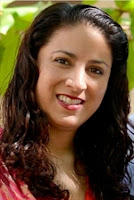Transition from academia to industry: An interview with Elizabeth Paik

We have all read many articles about the possible career choices of a scientist. The usual dilemma is between industry and academia. We have talked about this in previous blogs but the more information we get the easier it is to make a wise choice. Of course we all have opinions about the pros and cons of such a choice but what I always find best is to ask people who have experienced both. That is why I turned to an old colleague and friend, Elizabeth Paik, and asked her some questions regarding her experiences in both academia and industry. Can you describe to us your scientific career? I started my career at Harvard Medical School, as a graduate student in Dr. Len Zon's laboratory. My thesis work focused on understanding a role of CDX transcription factors during embryonic hematopoiesis. Through ChIP-seq, knockdown and overexpression studies in zebrafish, I showed CDX transcription factors control expression of hematopoietic transcription factors - SCL and LMO2. Towards the...


